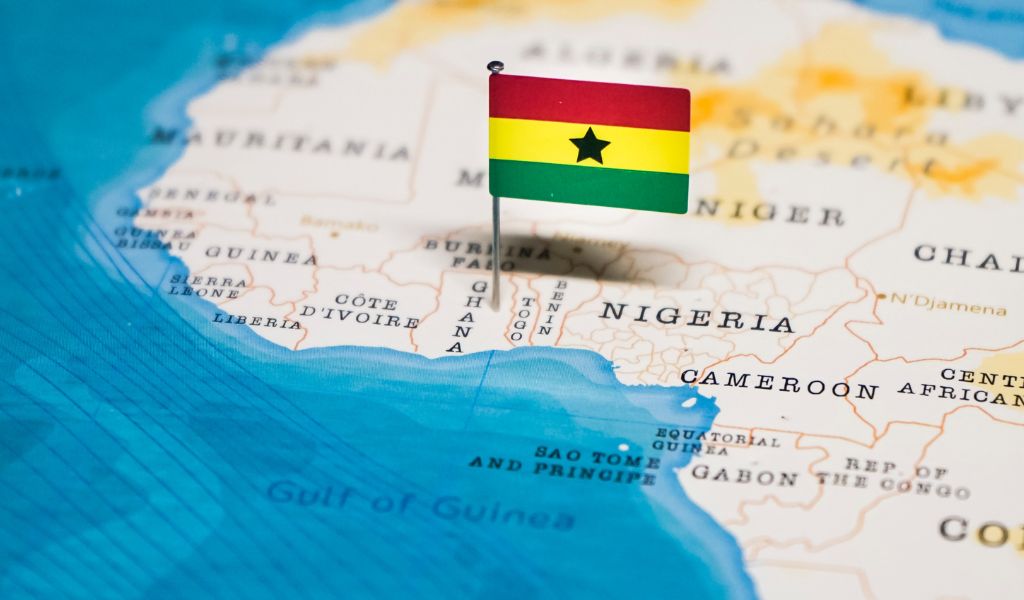For Ghanaian cocoa farmers’ livelihoods and for Ghana’s national income, maintaining access to higher value European cocoa markets is paramount. However, the European Deforestation Regulation (EDR), due to be implemented in December 2024, will reject cocoa linked to deforestation. Will Ghana’s current national legislation on tree tenure still support farmers to access international markets in light of the EDR, and fulfil national climate change commitments?

Under the impending EDR, farmers will not be able to sell cocoa to European markets if their products are linked to deforestation. The EDR defines a forest as at least a 0.5 hectare area with ten percent cover of trees over five metres tall. Farmers who deforest areas of land meeting this description will be unable to sell to European commodity markets.
Consequences of current legislation
However, in Ghana, current legislation encourages certain forms of deforestation, therefore jeopardising farmers’ entry into European markets. Under the Concessions Act of 1962, naturally occurring trees (i.e. trees that have not been intentionally planted) are owned by the government or ‘vested in the state’, regardless of who owns or has tenure of the land they grow on. They can only legally be harvested for timber by a logging company with an appropriate timber harvesting permit from government. These are the only parties entitled to a share of any profit for timber sales.
It might be imagined that this timber ownership and harvesting policy encourages farmers to leave trees on their farms alive. However, the Rights and Advocacy Initiatives Network (RAIN), a Ghanaian NGO and IDS Ghana Development Hub member, has found otherwise. RAIN’s recent consultations with farmers have shown that this legislation encourages farmers to destroy naturally occurring tree saplings. Farmers uproot saplings and burn or poison trees, for example by removing bark and spreading (DDT insecticide) on the stem. Farmers explained that they prefer to destroy trees in this way rather than allow loggers to harvest them legally.
Damage from timber harvesting
This is partly because farmers do not financially benefit as loggers while the government or permitted logging companies do. Additionally, timber harvesting causes disruption and collateral damage to the farmers’ crops grown alongside naturally occurring trees, and farmers do not receive compensation for the damage. To avoid this, farmers prefer to destroy trees rather than risk loggers harvesting them and damaging their crops, as they are allowed to do under the Concessions Act.
In this way, the Ghanian Government’s Concessions Act encourages farmers to deforest trees on their land and therefore breach the EU’s EDR and jeopardise their own entry into higher value cocoa export chains after December 2024.
Simultaneously, national ‘Reducing emissions from deforestation and forest degradation in developing countries’ (REDD+) ambitions, as well as obligations under Nationally Determined Contributions (NDCs) aim for farmers to afforest (establishing a forest where there was no recent tree cover) farms – e.g. through the Ghana cocoa forest REDD + programme and the national level emissions reduction programme. Yet, this is currently being undermined by the Concessions Act.
Complexities of efforts
Members of the IDS Ghana Development Hub met with officials of the Ghana Forestry Commission to discuss the complexities of efforts to support Ghana’s NDCs in this context. The Forestry Commission is working with multiple strategies to support NDCs. These include Assisted Natural Regeneration (ANR), where naturally occurring trees are supported, the Modified Taungya System (MTS), where farmers are allowed to crop temporarily within plantations, and straightforward Plantation Development (PD). ANR is not supported by the current legislative environment of the Concessions act, but MTS and PD, which privilege timber over food crops, are better supported, as trees can be registered to be owned by farmers.
Dealing with climate change
Progress on climate change goals is threatened by the mismatch between the outdated national legislation and the emerging global protocols and standards designed to deal with the reality of climate change. Ghana has stated it would like to participate in these efforts but to do so needs to adapt the Concessions Act to be able to have a chance of meeting its obligations and ambitions. This mismatch has implications for farmer livelihoods and poverty alleviation, as well as for climate change mitigation, as farmers are prevented from accessing value chains that have socioeconomic and environmental benefits.
Therefore, for Ghana to be able to contribute to solving the global issue of climate change, whilst providing farmers with opportunities to support their livelihoods through engagement in value added commodity circuits, legislative reform is needed. Such reform, however, must be thoughtful rather than a kneejerk reaction.
Giving tree ownership to farmers may allow them to protect the tree from being logged, especially when combined with incentives such as the EDR. Simultaneously, safeguards would need to be put in place to ensure logging and deforestation did not take place if conditions became less favourable for tree preservation. Legislative reform should therefore be informed by research on appropriate solutions for equitable distribution of long- and short-term benefits in Ghana’s diverse land and tree tenure contexts. This could include exploring models that involve payments for ecosystem services. RAIN and the Forestry Commission have participated in a series of stakeholder consultations on such change over the past decade, to no avail. The EDR comes into effect in 2024 – the need for well-informed reform is urgent.